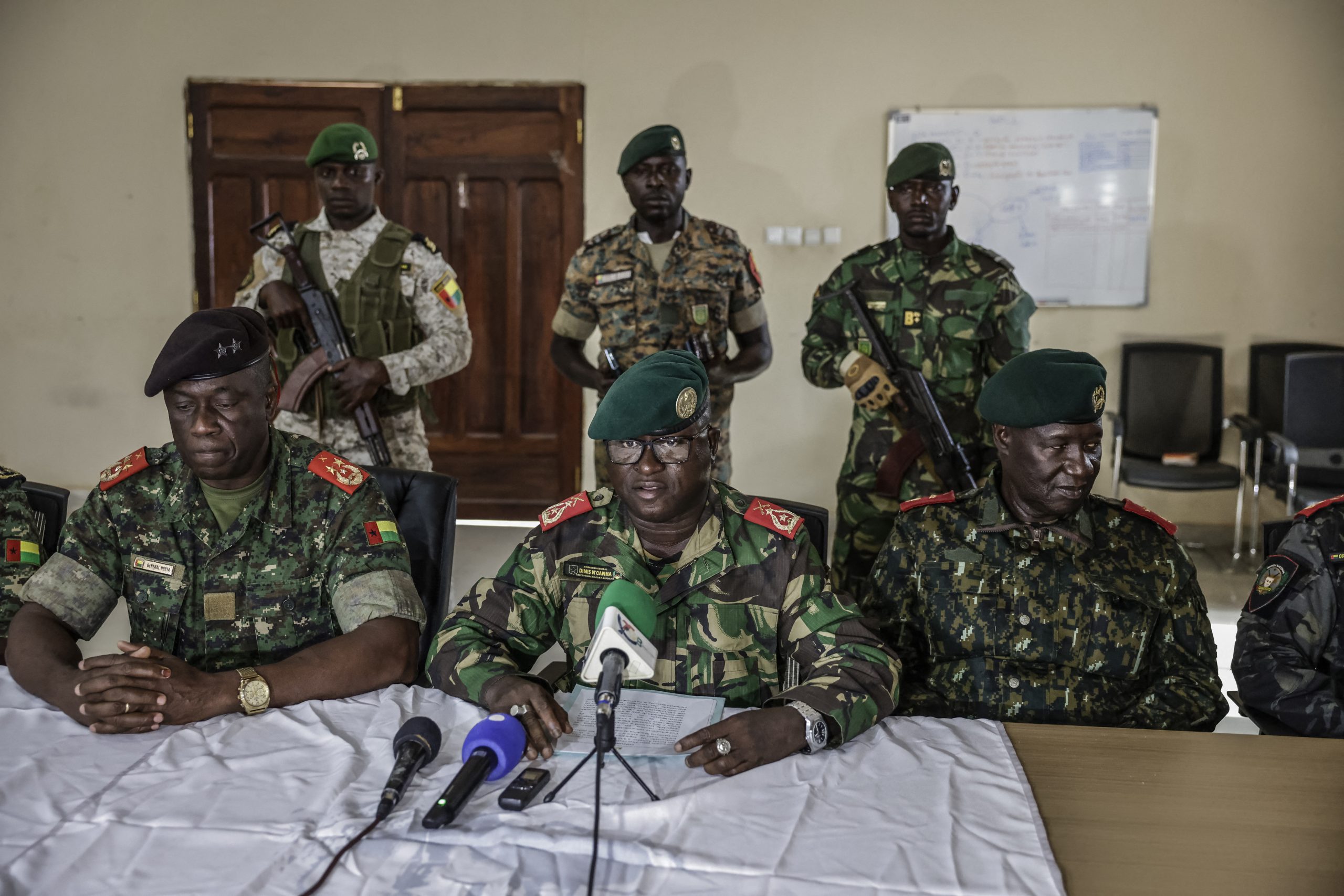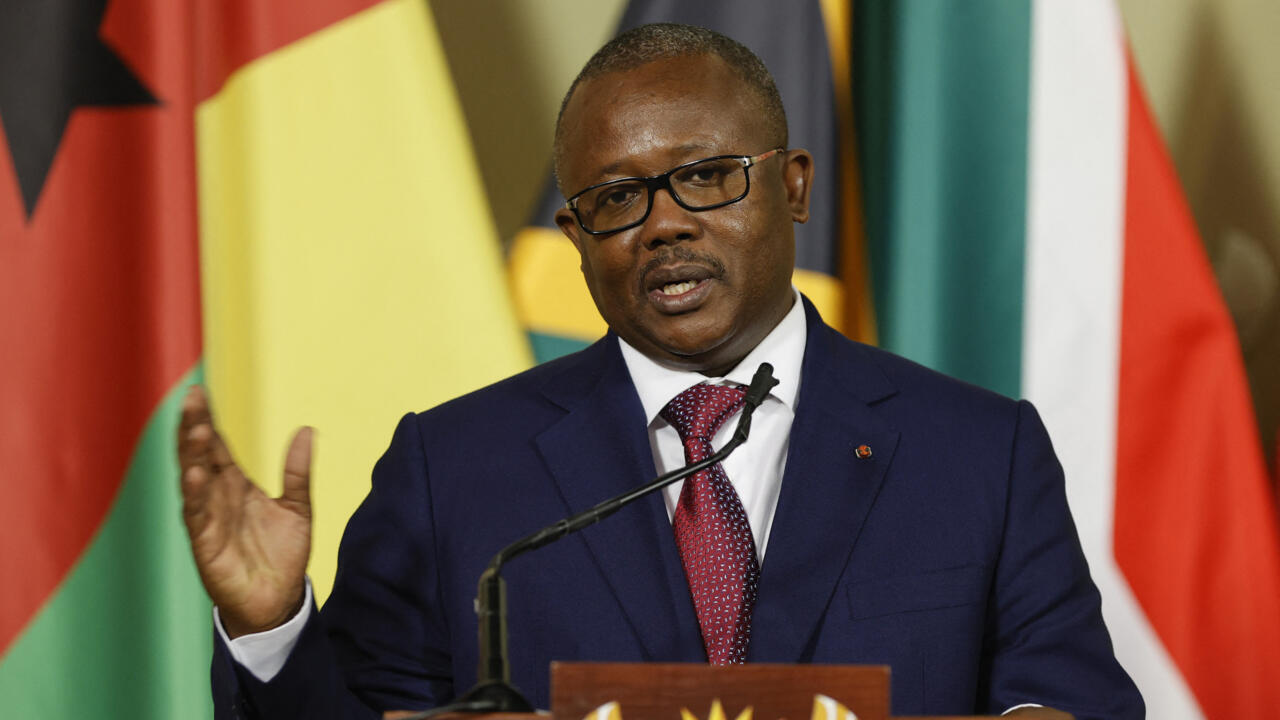Guinea-Bissau‘s military appointed a general as the country’s new leader for the duration of one year Thursday, a day after seizing power, arresting the president and derailing the announcement of election results.
The capital was at a standstill as the coup entered its second day, with most shops and markets closed, AFP journalists observed.
A heavy security presence was visible in the streets of Bissau, with soldiers patrolling the area around the presidential palace where heavy gunfire marked the beginning of the coup a day earlier.
Sandwiched between Guinea and Senegal, Guinea-Bissau has experienced four coups since independence from Portugal in 1974, as well as multiple attempted coups. Its election results are often contested.
After taking the oath of office at the military’s headquarters, General Horta N’Tam, chief of staff of the army, declared that “I have just been sworn in to lead the High Command”.
He is considered to have been close in recent years with ousted President Umaro Sissoco Embalo, whom he now replaces as leader.
Dozens of heavily armed soldiers were at the scene as he told a press conference that actions were necessary “to block operations that aimed to threaten our democracy”.
Officers on Wednesday said they had seized “total control” of the coup-prone country, suspending the electoral process as Guinea-Bissau awaited the results of last Sunday’s vote, which pitted Embalo against opposition candidate Fernando Dias.
N’Tam said evidence had been “sufficient to justify the operation”, adding that “necessary measures are urgent and important and require everyone’s participation”.
On Wednesday afternoon, General Denis N’Canha, head of the presidential military office, told journalists that the military was assuming control of the country “until further notice” after a plan involving “drug lords” had been uncovered, including “the introduction of weapons into the country to alter the constitutional order”.
In addition to halting “the entire electoral process”, he said military forces had suspended “all media programming” and imposed a mandatory curfew.
All land, air and sea borders were reopened Thursday, according to General Lassana Mansali, after the country was briefly sealed off.
Members of Guinea-Bissau’s diaspora and researchers told AFP that they questioned the true motives behind the power grab, which they say could ultimately benefit ousted Embalo.
According to researchers interviewed by AFP, unverified preliminary results circulating before the coup showed opposition candidate Dias as the winner of the election.
– ‘Grave violation’ –
“I doubt the veracity of the allegations put forward by the High Military Command regarding the restoration of order”, a West African researcher told AFP on Thursday.
The coup occurred the day before the expected announcement of provisional results, with both Embalo and Dias claiming victory.
“This is a coup aimed at preventing the opposition candidate, Fernando Dias, from seizing power”, the researcher said.
According to him, “this is the ideal scenario for Mr Embalo, who could, following negotiations, be released and potentially reposition himself for the next elections”.
Embalo was arrested Wednesday, as was his arch rival, opposition leader Domingos Simoes Pereira, who was barred from last weekend’s presidential election by the Supreme Court.
The African Union (AU) unequivocally condemned the coup on Thursday and demanded Embalo’s immediate and unconditional release, while the chair of the West African regional bloc ECOWAS called the affair a “grave violation of Guinea-Bissau’s constitutional order”
The west African region has been rife with coups in recent years, with Mali, Burkina Faso, Niger and Guinea all seeing their governments toppled.



![Former Nigerian President Goodluck Jonathan has been trapped in Guinea Bissau after a military coup halted the country’s elections and closed all borders. [X, formerly Twitter]](https://cdn.guardian.ng/wp-content/uploads/2025/11/image-2.png)


